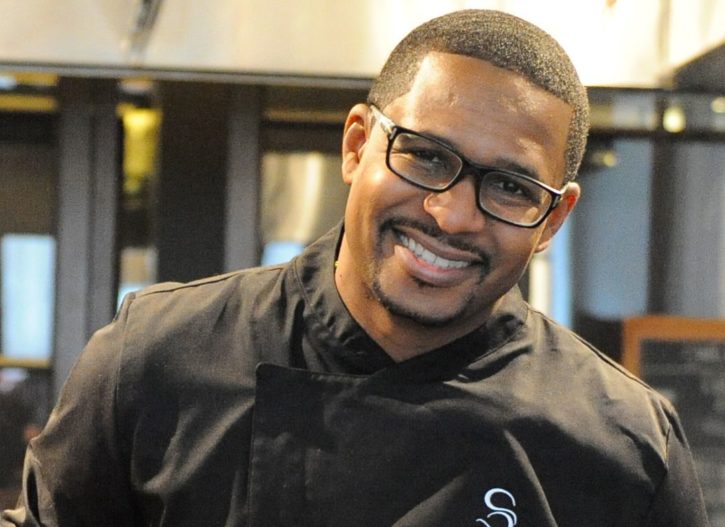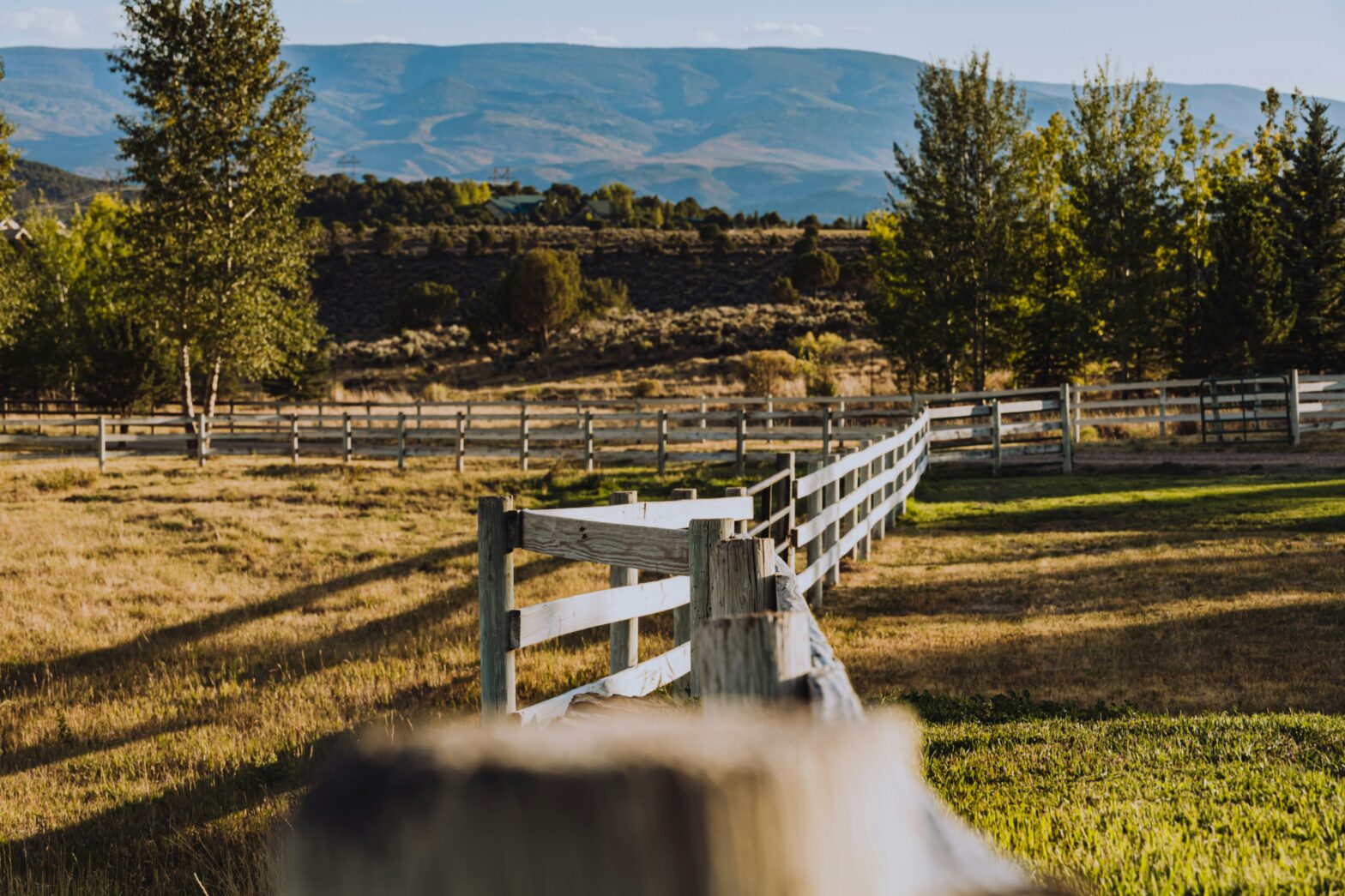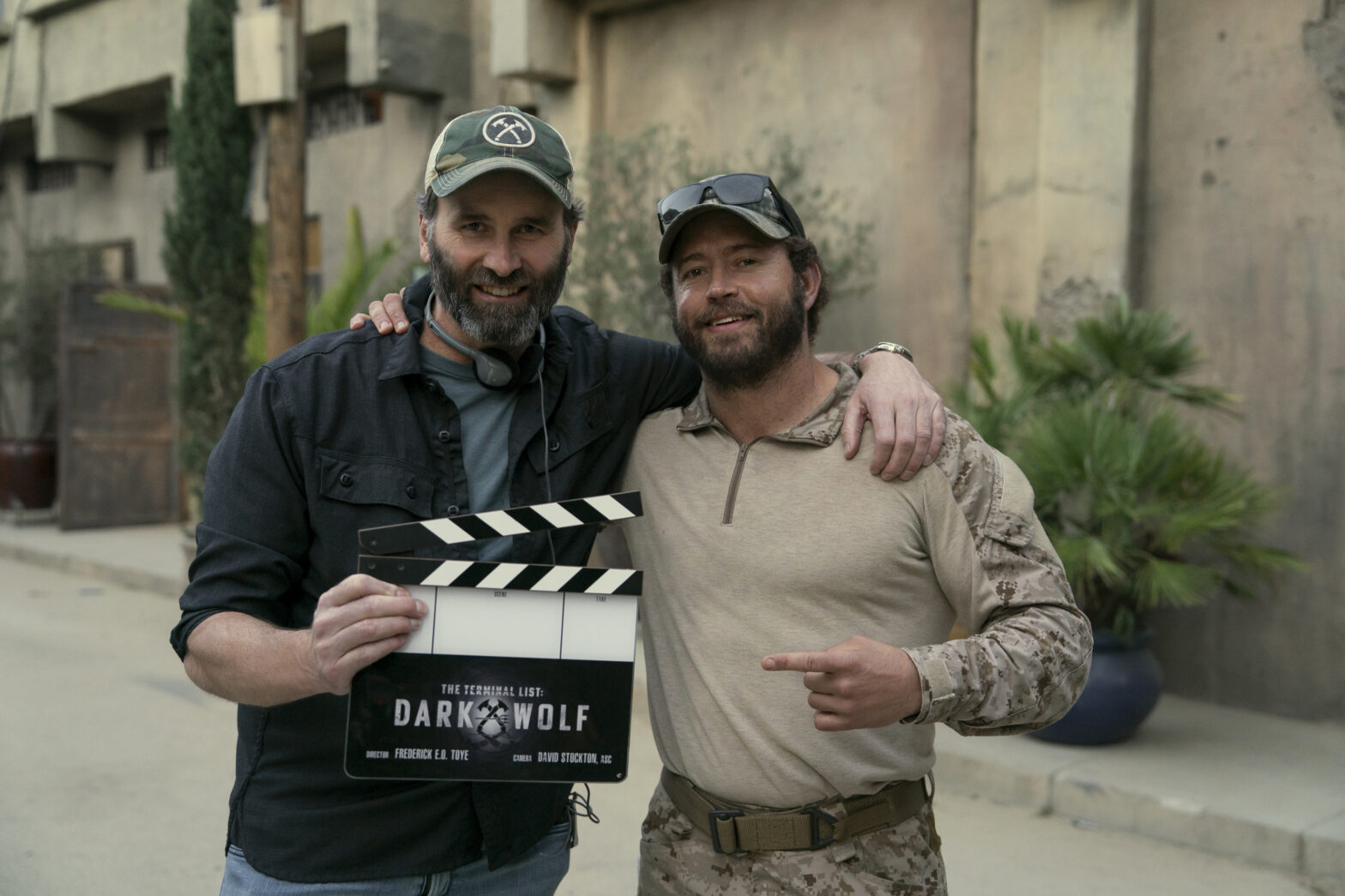Brooklyn-based chef Shorne Benjamin is proof that life is not necessarily linear. The St. Lucian born chef left the island in his late teens to study finance at New York’s Mercy College in 1998, eventually making his mark as a successful stockbroker. But the trajectory of his career soon changed after the global financial crisis in 2008. The turbulent time forced Benjamin to reevaluate his future and gave him space to get reacquainted with his culinary skills, a passion that was nurtured while growing up with his grandmother in St. Lucia.
Bolstered by a renewed sense of purpose, Benjamin enrolled in culinary school and has since carved out an impressive career in the food industry. In the past few years, he has worked alongside renowned Master Chef Jean George and James Jermyn, done a showcase for New York’s Food and Wine Festival, participated in the Taste of Montréal festival, the 11th Annual Iron Chef Competition in Toronto, Haitian Food & Spirits Festival, and the James Beard Dinner Series: Caribbean Sensation, served as Executive Chef for the Annual Rum and Rhythm Benefit hosted by the Caribbean Tourism Organization in New York, and has appeared on the Food Network’s Beat Bobby Flay and Chopped.
These days,Shorne Benjamin is bringing his signature New Age Caribbean ® culinary style straight to his customers’ kitchen with his private chef experience. His menu for a recent dinner party featured Smoked Carrot Soup with Crab Meat, Grilled Romaine Salad with a Citrus Yogurt Dressing, Hot Honey Lavender Chicken with Apricot Forbidden Rice, and Seafood Bouillabaisse.
Benjamin spoke with Travel Noire in between events about his first memories of cooking with his grandmother, the transition from Wall Street to culinary school, finding his signature style, and why Spain is the ideal location for a Caribbean restaurant.
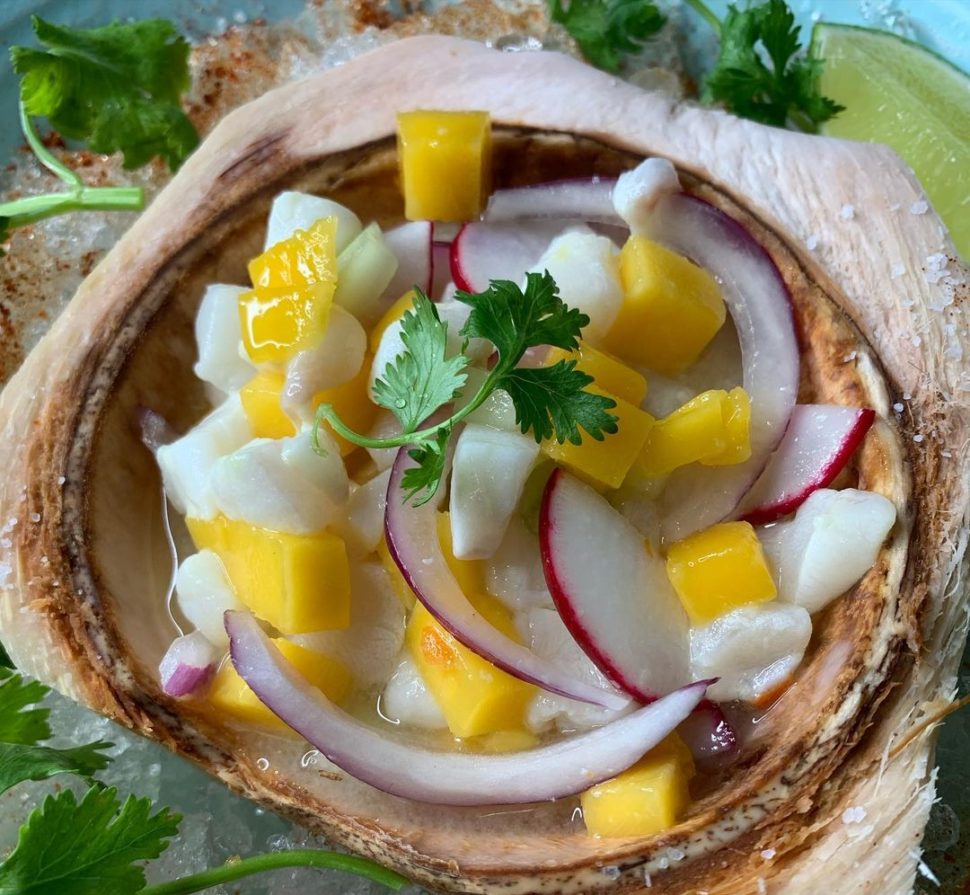
Travel Noire: You’ve said that your grandmother inspired your love of cooking. Tell me about the impact she had on you.
Shorne Benjamin: She made me realize that cooking is another way of showing love and appreciation. You can show love in different ways. And for me, that just made me happy. So I’m just tying that to how I cook right now and putting love into food.
TN: What is the first dish you remember making with her?
SB: The first thing I can remember making was the green banana or green figs and stewed chicken. She loved her ground provisions. And that was something that she taught me how to make first. That was good. You have to get the right green bananas. You can’t get the bananas that are under-ripe.
TN: Even though you loved cooking with your grandmother, you did not originally plan to become a chef. You actually worked on Wall Street. How did you make that transition?
SB: It’s life, and it’s just like this whole pandemic going on right now. Back then it was the financial crisis in 2008, 2009, and I was out of a job. I was 30 at the time, and I was at a crossroads in my life. I didn’t know what direction to go. I’m looking at the financial world and that’s not going to recover any time soon. I needed to keep moving and keep positive. So I decided to go into cooking because I had a dream to open my own restaurant. I figured I had no clue how to do a menu, much less open a restaurant. So I enrolled in culinary school to just get the basic foundation. I attended the French Culinary Institute down in Soho. It was a great option for me to go there. It was a great foundation. It’s one of the best, the alumni, and the whole support of the school after you graduate is amazing.
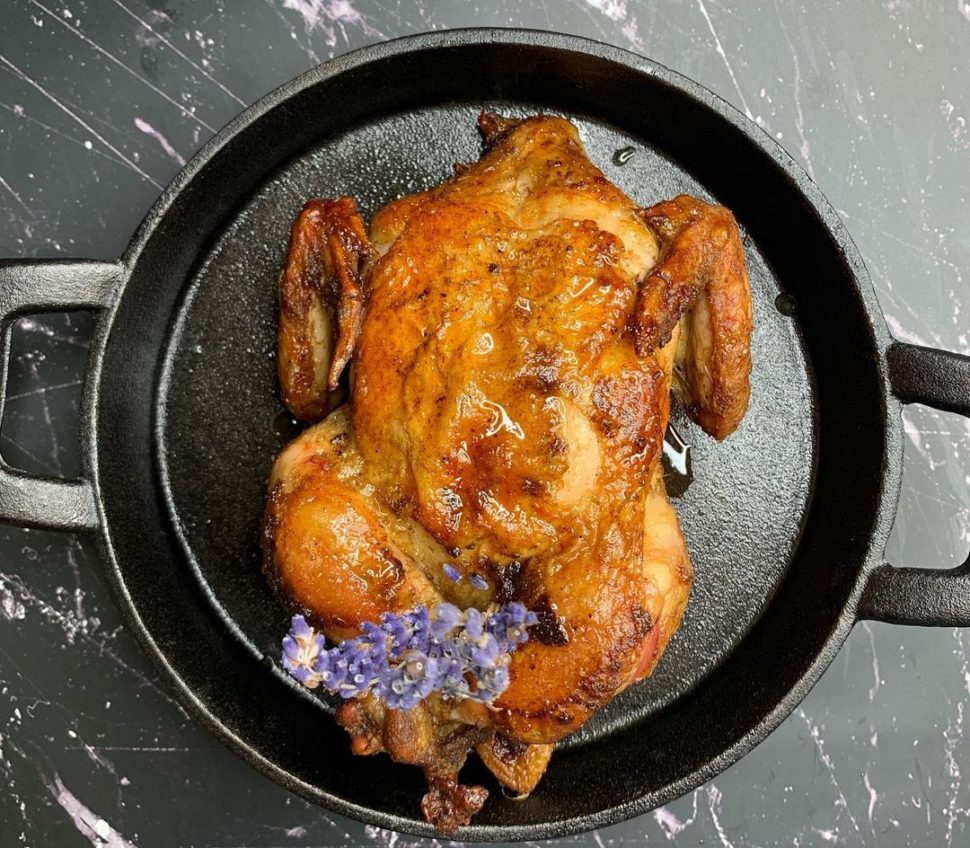
TN: As a chef, you infuse a lot of your St. Lucian heritage into your food. How did you develop your cooking style?
SB: For me, it’s going back to begin my formal training as a chef in culinary school. You’re in a classroom where everybody’s eager to learn French cooking, Thai cooking, and here I am thinking, okay, I’m just here to get the basics of what cooking is really about and use that language in a Caribbean format, with Caribbean inspiration. So they might teach me some Italian dish and I find ways to be creative and put a spin on it to make it into a Caribbean dish by adding different flavors. One of my signature dishes I have right now is duck confit. When I learned how to make it, I thought, ‘wait a minute. What if I add some Caribbean spice to this and get a different flavor?’ And it worked when I added jerk seasoning to it. It was like, whoa! That was on another level. So just taking the foundation of traditional, classic French cooking and just spin it with a Caribbean flair. That was my aim in culinary school. I just wanted to grasp as much cooking knowledge as possible, but relate it to my Caribbean heritage.
TN: How did you refine your skills when you were done with culinary school?
SB: I worked at a few restaurants, but to be honest with you, it’s just me and my imagination and my creativity— I get inspired by that. It’s not like you go to a restaurant and look at a certain chef. You can’t always look at everything as black and white. I like to eat out and always use that inspiration. So it’s not like I can say I could go to a certain restaurant I’ve learned certain things from. It’s a combination of traveling, eating out, and seeing different things where you get inspired, and you just put your own spin on it.
TN: You’ve actually done some stuff with the food network: Tell me how that came about?
SB: It’s just me pushing myself. I’m always wanting to be aiming for greatness. I got a phone call randomly, and I guess in this day and age of social media, people see stuff, and you don’t actually know who’s watching. A casting operator from the Food Network came across my page and was interested in me and figured that the way that my food looked, and the skill set I was showing would be great to be on the show. The first show I ever did was Beat Bobby Flay. It was just a new opportunity to showcase Caribbean cuisine. It’s great for me, but at the same time, I just want to represent my culture, to show them what Caribbean cuisine is and what it could be and not just look at it as rice and peas and jerk chicken, which is so commercial. There’s nothing wrong with that, I always tell people. I’d eat that every day if I can, but I like to go deeper in flavor and ingredients and show the true Caribbean essence.
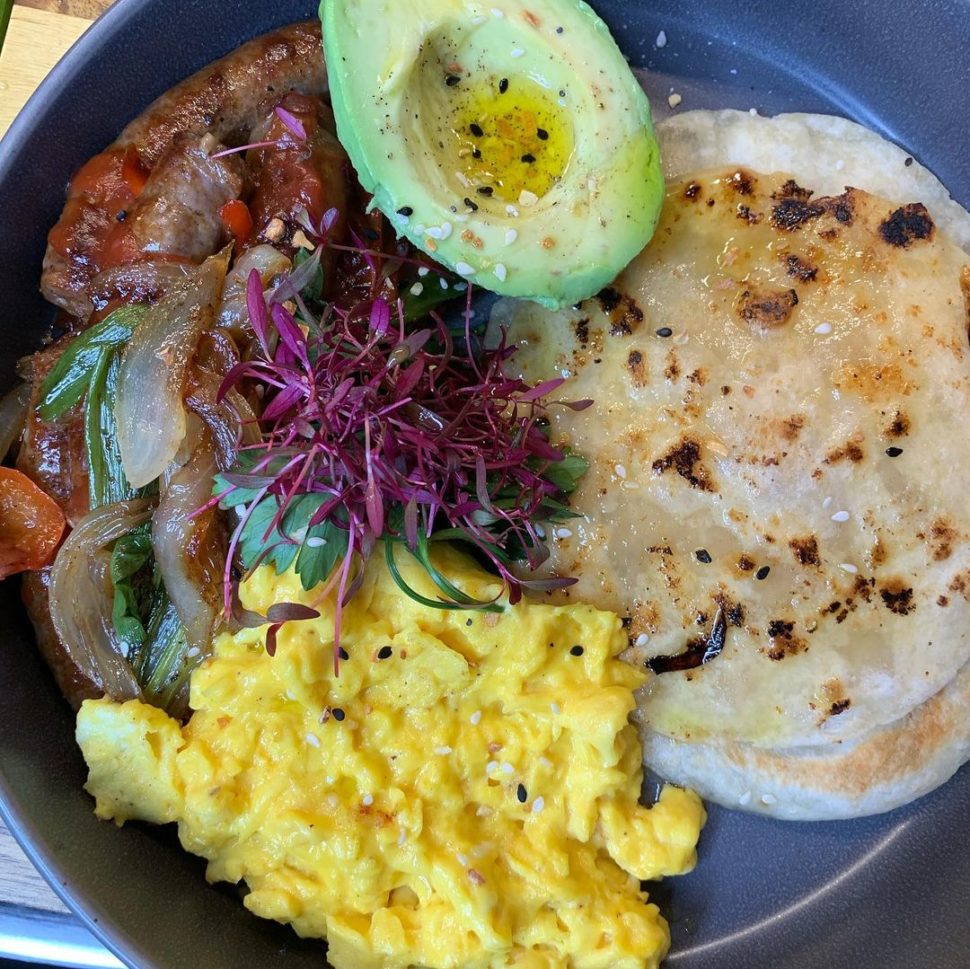
TN: You’re a private chef now. What can customers expect from the Chef Shorne experience?
SB: In a nutshell, it’s just me being true to myself. This whole pandemic has kind of pivoted me to rely on myself, not accept what’s going on, but to push and to come out on top. Being a private chef is just having fun with food and having people experience food differently using things that they probably typically eat, but it’s giving them a different experience, a different flavor profile. Sometimes I play mixologist where pair foods with different kinds of cocktails. I’m just having fun and showing what a Caribbean experience is. When I come to somebody’s house, I’m bringing the restaurant to them, since I don’t have my own restaurant as yet.
TN: Is that a long-term goal for you?
SB: Yes! Definitely to open up a restaurant. First on my list is a location in Spain. I visited Spain a couple of years ago, and I realized there is a similarity in terms of Caribbean cuisine and Spanish cuisine. It’s kind of mirrored in pelau and paella. There’s that same sequence of the rice and meat, and in Spain I got a true sense of their paella. I see that they eat oxtail, so it’s similar. With Spanish food, what’s lacking is the spice. So I would put an essence of spice and flavors and even make Caribbean tapas just to shake up the whole food scene. I’m getting goosebumps just thinking about if that’s possible for me. I’d do it. Definitely London as well and South Beach. It’s so crazy how as much as South Beach is commercial and there’s a beachfront, there is no Caribbean restaurant, on restaurant row. And LA. Caribbean culture is about a vibe. I want to showcase that not just with music or dance, but with food.
For more information about the Chef Shorne Experience follow him on Instagram.
This interview has been edited and condensed for brevity and clarity.
